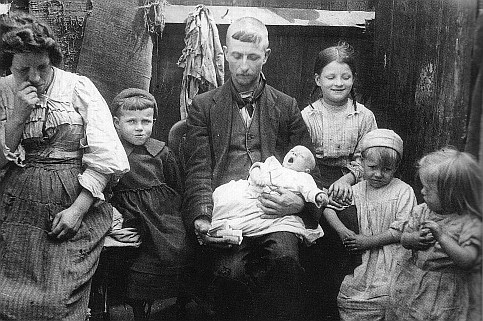Starting to research your family tree can be daunting. There is so much to think about when starting out and then there is the BIG question, Where do I start? Hopefully this blog will be able to guide you in the right direction.
1. Start with what you know as fact, yourself, your parents and possibly your grandparents.
1. Start with what you know as fact, yourself, your parents and possibly your grandparents.
2. Talk to other family members, aunts, uncles, cousins and any elderly relatives.
3. Get out the family photographs and try and name the people in them. Put their names on the back.
4. Write a simple family tree on paper, it can be invaluable for sorting out where everyone fits in your tree.
5. Go to the Birth, Marriage and Death indexes (commonly referred to BMD index) and try to find your family members. To see full details you will need to order a certificate. http://www.freebmd.org.uk/cgi/search.pl has entries up to approximately 1984 although many years are
incomplete. For parish registers there is also http://www.freereg.org.uk/search/index.htm and the online parish clerk project http://www.onlineparishclerks.org.uk/
6. If you find it difficult identifying your ancestor, try reversing their names. Sometimes people
were known by their middle names but appear in the register under a different first name. Also
try different spellings of surnames. You should remember very few people could read and write
so when asked for their name your ancestor could not say whether or not the registrar had
spelt it correctly. Also it may be mistranscribed by the transcriber who was indexing for the
search engine.
7. Once back to 1911 you can find your ancestors in the census records. These will help you
6. If you find it difficult identifying your ancestor, try reversing their names. Sometimes people
were known by their middle names but appear in the register under a different first name. Also
try different spellings of surnames. You should remember very few people could read and write
so when asked for their name your ancestor could not say whether or not the registrar had
spelt it correctly. Also it may be mistranscribed by the transcriber who was indexing for the
search engine.
7. Once back to 1911 you can find your ancestors in the census records. These will help you
pinpoint places of births, occupations and other family members. These help you to begin to
build up a picture of your ancestors lives.
8. It is important to verify the information at each stage.
9. It should also be remembered that not all records are online.
For the history of civil registrations you may find it useful to read this article:-
https://www.familysearch.org/learn/wiki/en/England_Civil_Registration#General_Historical_Background
Census's have been taken every 10 years since 1801 but contained a lot less information than the more modern ones.
The 1801 census asked for the number of inhabited and uninhabited houses in the area and how many families where in residence. It also asked for the number of people in the parish, and for the number of baptisms, marriages, burials and about employment.
Additional questions where asked in 1811, 1821 and 1831 censuses. In 1811 enumerators were asked why properties where uninhabited so that it could be more accurately determined how prosperous an area was. In 1821 the additional questions related to age, so that life insurance tables and the number of men old enough to bear arms could be assessed and in 1831 more detailed questions on occupation where asked. However, the 1841 census is the first one available to family historian and contains more detail than the earlier ones. Although incomplete, www.freecen.org.uk is a very good resource.
From 1851 to 1901 the place of birth is more detailed. The 1911 census is special in that it was the first census that was filled in by the head of the household rather than an enumerator.
For help with your research find us by using the link below:-
https://www.facebook.com/GenealogyResearchAssistant

